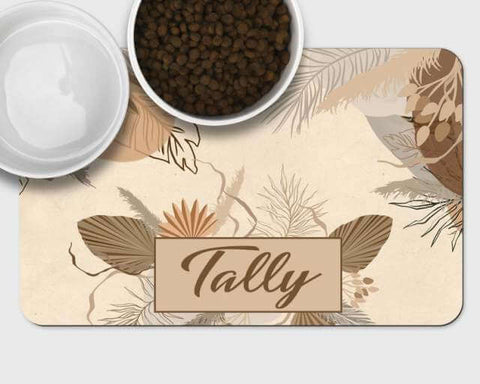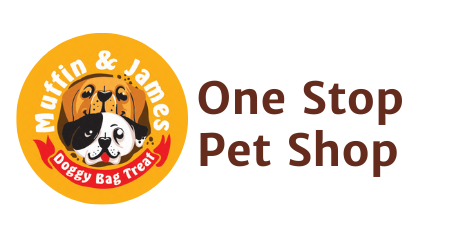How Often Should You Feed a Puppy and How Much?
How often should I feed my puppy? If you just brought home a new four-legged family member, this might be the exact question on your mind.
Feeding a puppy is essential to its growth and well-being, yet comprehending how frequently to feed them can prove challenging. As a dog owner, you must understand the basics of canine nutrition and select the right type and brand of food to ensure your dog develops appropriately.
Fear not if you’re feeling lost regarding your new puppy and its nutritional needs! We’ll explore how often puppies should eat, puppy nutrition basics, types of foods available today, and helpful tips for ensuring your pup gets all they need from mealtime.

Feeding Schedules
You might be wondering how often puppies should eat. Regularly nourishing your pup is essential for their physical and mental well-being.
How often should you feed a puppy?
Pups should feed three times a day until they reach six months old, then twice afterward. The quantity of nourishment for your puppy varies, depending on their size, age, activity level, and breed.
Generally speaking, puppies should eat between 1/4 cup to 2 cups per meal, depending on the abovementioned factors. You will want to confer with your vet for tailored advice based on your pup’s immediate requirements.
Feeding Times
Incorporating consistent meal times into your dog’s routine helps establish good eating habits and keeps them from getting too hungry or overeating during mealtimes.
Try setting alarms or reminders, so you don’t forget when it’s time to feed.
Nutritional Variety
Offering variety in ingredients (meat vs. grains) and textures (dry kibble vs. wet canned food) can help ensure that puppies get all the nutrients they need while keeping them interested in mealtime.
Be sure to do what is necessary; sticking with one brand is usually recommended unless a vet or pet nutritionist advises otherwise.
When puppies reach around 6-9 months old, it is time to transition them to adult dog food formulas with different nutrient requirements than those explicitly formulated for growing pups.
Puppy Nutrition Basics
Puppies require a balanced diet, including protein, carbs, fats, vitamins, minerals, and other essential nutrients.
Protein Requirements
Protein is essential to a puppy’s diet as it helps build muscle mass and provides energy. However, protein should comprise no less than a quarter of the pup’s daily caloric consumption.
Good protein sources for a pup’s diet include lean meats like chicken or turkey, fish such as salmon and tuna, eggs, yogurt or cottage cheese, legumes like beans and lentils, nuts/seeds, and whole grains quinoa or oats.
Carbohydrates and Fats
Carbohydrates provide puppies with energy, while fats help them absorb specific vitamins. Most of their calories should come from carbohydrates, but they should also get some healthy fats in their diets – about 10-15%.
Healthy fats for puppies can be sourced from oils such as olive, coconut and flaxseed. You can also consider offering fatty fish like salmon, chia seeds, and nuts like walnuts or almonds.
Vitamins & Minerals
Vitamins are essential for puppies to stay healthy – especially Vitamin A which helps support vision health – while minerals help keep bones strong by providing calcium and phosphorus.
Leafy greens (e.g., spinach), orange veggies/fruits (Vitamin A), cruciferous veggies (Vitamin C), apples (fiber), and bananas (potassium) can be excellent sources of vitamins & minerals for puppies.
Also, look for foods fortified with additional vitamins & minerals to ensure your pup gets all the necessary nutrients. Supplying your puppy with food with a suitable balance of calcium and phosphorus is critical, generally a 1:2 ratio.
Neglecting this now may lead to serious health issues in the future; therefore, check puppy food labels for a separate listing of these two ingredients so you can be sure what ratios are being fed daily.
Types of Puppy Food
Let’s explore some of the types of available puppy food.
Dry Puppy Food
Dry puppy food is the most common type and comes in various shapes, sizes, flavors, and formulas.
It is usually made from high-quality proteins such as chicken or beef meal, whole grains like rice or oats, vegetables for fiber and vitamins, and fruits for antioxidants and other nutrients.
This food provides complete nutrition to your pup’s diet, with all the essential vitamins and minerals they need to grow strong bones and healthy muscles.
Wet Puppy Food
Wet puppy food is typically a canned or pouch form that contains more moisture than dry kibble.
It also contains higher protein levels than dry foods, which can benefit puppies growing rapidly during their first year. In addition, the wet texture makes it easier for puppies to chew since their teeth are still developing at this stage.
Furthermore, wet foods provide additional hydration, which helps keep them well-hydrated throughout the day.
Raw Diet
A raw diet consists of uncooked meats such as chicken necks or wings, organ meats like liver or heart mixed with fruits and vegetables like carrots or applesauce, and supplements such as calcium carbonate powder if needed by your pup’s breed size requirements. Its important to do your research and For most dogs, the transition from their current kibble to a raw dog food diet will be seamless and beneficial. A high quality raw food diet helps muscle tone, reduces risk of allergies, cleaner teeth and gums, and much more. If you’re unsure of how to transition your beloved furry friend to a raw diet, check out the many resources like Maxium K9 Raw Dog Food Guide to help make the switch to a well-balanced raw diet.
Raw diets have become increasingly popular among pet owners because they believe that feeding a natural diet will help improve digestion while providing optimal nutrition without added preservatives in commercial dog foods.
However, you should consult your veterinarian before switching your pup to a raw diet due to potential health risks associated with bacteria in uncooked meat products.
Homemade Diets
Homemade diets are becoming more popular among pet owners who want control over what ingredients go into their pup’s meals.
These diets consist primarily of cooked proteins (like boiled chicken), with cooked carbohydrates (such as brown rice), fresh vegetables like broccoli florets, and some fat sources like olive oil for extra energy.
If done correctly, these types of diets can provide balanced meals; however, there may be nutrient deficiencies depending on how much variety you include, so regular checkups at the vet would be advised when using this option.
Choosing the Right Puppy Food Brand
When it comes to choosing the right puppy food brand, quality ingredients are essential. Look for foods that contain real meat as the first ingredient, and avoid those with by-products or fillers.
Whole grains like brown rice, oats, barley, and quinoa are excellent sources of fiber and nutrients. Avoid artificial colors or flavors as well as preservatives like BHA/BHT.
Nutritional balance is another critical factor when selecting a puppy food brand. Ensure the food contains all the necessary vitamins and minerals for your pup’s age and size.
The AAFCO has set regulations for pet foods to ensure they provide the essential nutrients; look for a declaration on the packaging demonstrating agreement with these criteria.
Reviews and ratings can be helpful when deciding which puppy food brand best suits your pup’s needs.
Moreover, several sites present separate ratings of distinct canine nourishment to let you contrast them before settling on the ideal one for your pup.
Feeding Tips for Puppies
Here are some tips on how to feed your puppy.
Mealtimes vs. Free-Feeding
Regarding feeding puppies, there are two main approaches – mealtimes and free-feeding.
With mealtimes, you provide your puppy with a set amount of food at specific times throughout the day. This helps them learn when to eat and can help prevent overeating or weight gain.
Free-feeding is when you leave food out all day for your pup to snack on as they please.
This approach is not always best for young canines who may indulge too much if given a chance, yet it functions optimally with adult puppies who have been taught how to eat daily.
Proper Portion Sizes
Knowing how much food to give your puppy ensures their health and well-being.
Puppies require more calories than adults due to their rapid growth rate, so ensure you provide enough nutrition without overfeeding them.
The exact portion size will depend on factors such as breed size and activity level, so always consult with your veterinarian before making any changes in diet or feeding amounts.
Abstain from giving your pup human food whenever possible. While it may seem like a good idea occasionally, these items can result in digestive issues or even more severe health complications. Always make sure the human foods given are suitable for your pups digestive system and with help and information from your vet and pet nutritionist.
Monitor Weight Gain
Keeping an eye on your pup’s weight is essential since obesity can lead to serious health issues later in life.
If your dog is gaining too much weight, reduce their portions slightly until they reach a healthy body condition score (BCS).
You should also consider any treats or snacks you give them throughout the day, as these could add up quickly if not monitored properly.
Conclusion
Feeding your puppy the right food at the right time is essential for their health and growth.
Pups necessitate a proportionate intake that furnishes them with all the required nutrients, vitamins, minerals, and energy for healthy maturation. Therefore, feeding puppies often is vital to ensure they get enough nutrition throughout the day.
When selecting the appropriate sustenance for your canine, contemplate their maturity, breed magnitude, energy level, and any hypersensitivities or susceptibilities they may possess.
Finally, always follow feeding instructions on the packaging to help you provide your puppy with the best nutrition possible.
If you’re looking for the best place to buy dog products online, look no further than DoggyBagTreat.com, where you can get the best pup food and buy dog treats for your new life companion!
Remember at Doggybagtreat.com clean eating is the best kind of dog treating.








